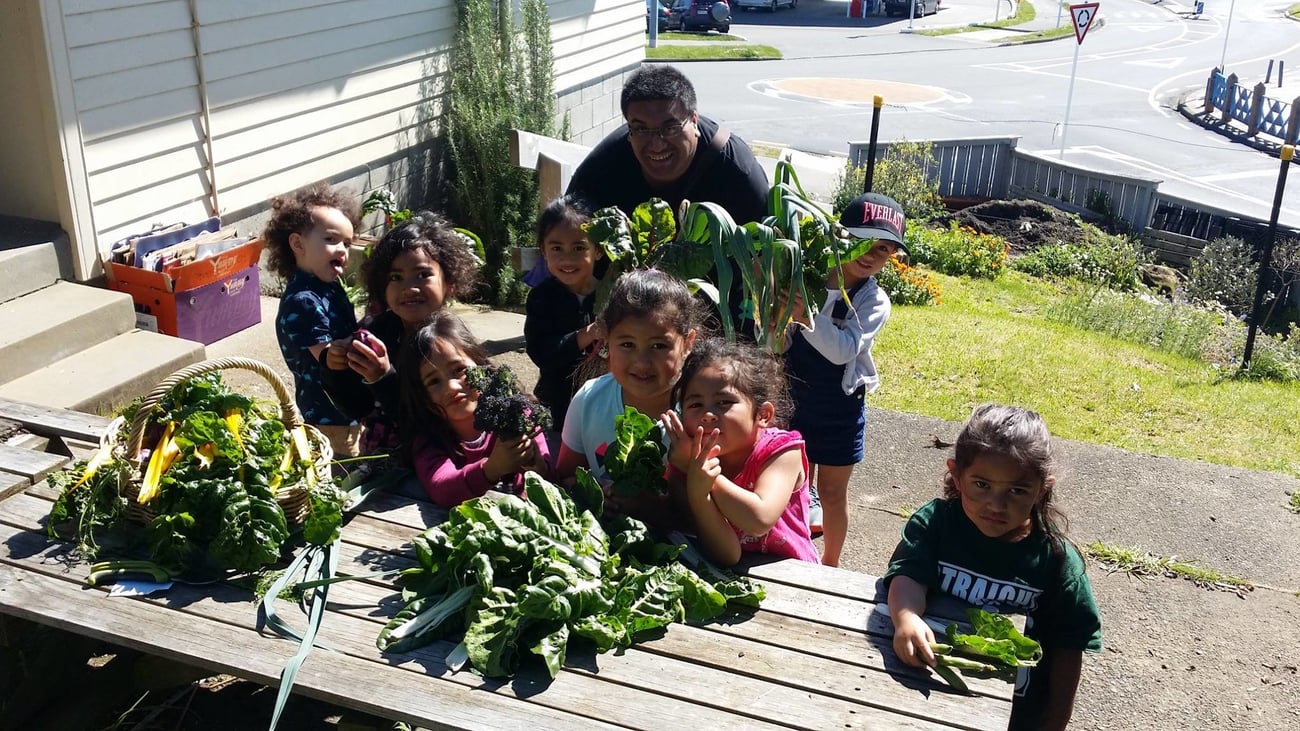Lessons from New Zealand’s largest fruit and vege co-op: how the community is taking charge

In 2007, we asked the question of our Cannons Creek community, ‘why do our food bank numbers keep growing?’ The answer to that question has taken Wesley Community Action on a long and bumpy journey with many detours and roundabouts.
This week, we have launched a new report into our journey so far. The report, Making Good Sense: Evidence and Lessons in Community Innovation, developed in partnership with Deloitte, shows just what can be achieved on a journey when the community is in the driving seat.

The straight-forward answer to our question of why we had more and more people coming and asking for emergency food parcels soon became obvious: high levels of costly household debt. Mostly for life’s basics like school supplies, funerals or illnesses. When a wh?nau doesn’t have enough to make it from week to week, any small crisis starts a drain of resources that is very hard to recover from.
We wanted to plug that drain and stop it sucking wealth out of families and our community. At first our team set its sights on who we thought were the cause of the problem – the ‘loan sharks’. But it soon became clear that simplistic blaming wasn’t the answer. The more we dug into the problem the more we realised that the answer to poverty is not just about more money (though we acknowledge that is very important). The answer is also about growing community wealth in all its senses.
When outsiders talk about Cannons Creek they often look at statistics. This community has a median income two-thirds of the rest of country, an unemployment rate that is 2.7 times higher, and half the average rate of home ownership. These numbers are part of the picture, but they don’t show us the people of Cannons Creek. The rest of the picture is in a different set of statistics found in this week’s report. They show a community with the skills, knowledge and resources to find local solutions to local problems.
When we asked the question ‘why are our food bank numbers still going up’, and created the opportunity for the community to respond, the answers were amazing. First up, they developed the innovative Good Cents financial wellbeing course. Good Cents is not a budgeting course, where a professional budget advisor decodes a person’s financial situation for them. Instead, participants lead their own journey, taking ownership and control of their finances.
More than 300 people have now taken the 8-week Good Cents course and built themselves a new, healthy relationship with money. This course doesn’t replace the need for campaigns to increase benefit levels and low wages. It complements them while providing some immediate gains.

Next, our community answered the question by digging up the front and back yard of Wesley House in Cannons Creek to create a community garden which feeds and inspires.
Then, still not finished, in 2014 they started a fruit and vegetable co-op. Since then, with support from Regional Public Health and many other partners, the co-op has exploded across the Wellington region. The Wellington Regional Fruit and Vegetable Co-op now has 10 packing hubs (with two more in the pipeline). Each week volunteers put in about 250 hours to get 9 tonnes of affordable fruit and vegetables into 1400 homes.

The Cannons Creek community still isn’t finished. By asking just one simple question we unleashed a stream of creative possibilities to enrich the local community … watch this space.
The partnership between Deloitte and Wesley Community Action has resulted in a valuable document on community-led innovation grounded in Cannons Creek. The report shows that communities can do wonderful things when the ‘helping’ organisation changes the way it works and lets go of old ways of thinking – from a ‘doing to’ approach to one of ‘working with’.
We learn that things don’t have clear edges and that coping with the detours and roundabouts can create challenges and uncertainty. But we also learn the value of honest partnerships and that by allowing more space for the people of a place to develop their own solution we can help trigger meaningful community development – and even help address the negative impacts of poverty. The scale of this work is local, linked to our place in Cannons Creek. But micro-initiatives like this can offer valuable insights for national policy and approaches.
Wesley Community Action is still learning about the changes we need to make to work most effectively. We don’t claim to have all the answers, we make mistakes and sometimes things do slip. However, despite – or perhaps because of – that we remain convinced that when we see something that needs doing, we should stop ourselves from rushing in and finding a solution. Instead, we should invite the community to respond. Shifting the focus and power to the people in the communities we want to thrive just makes good sense.




